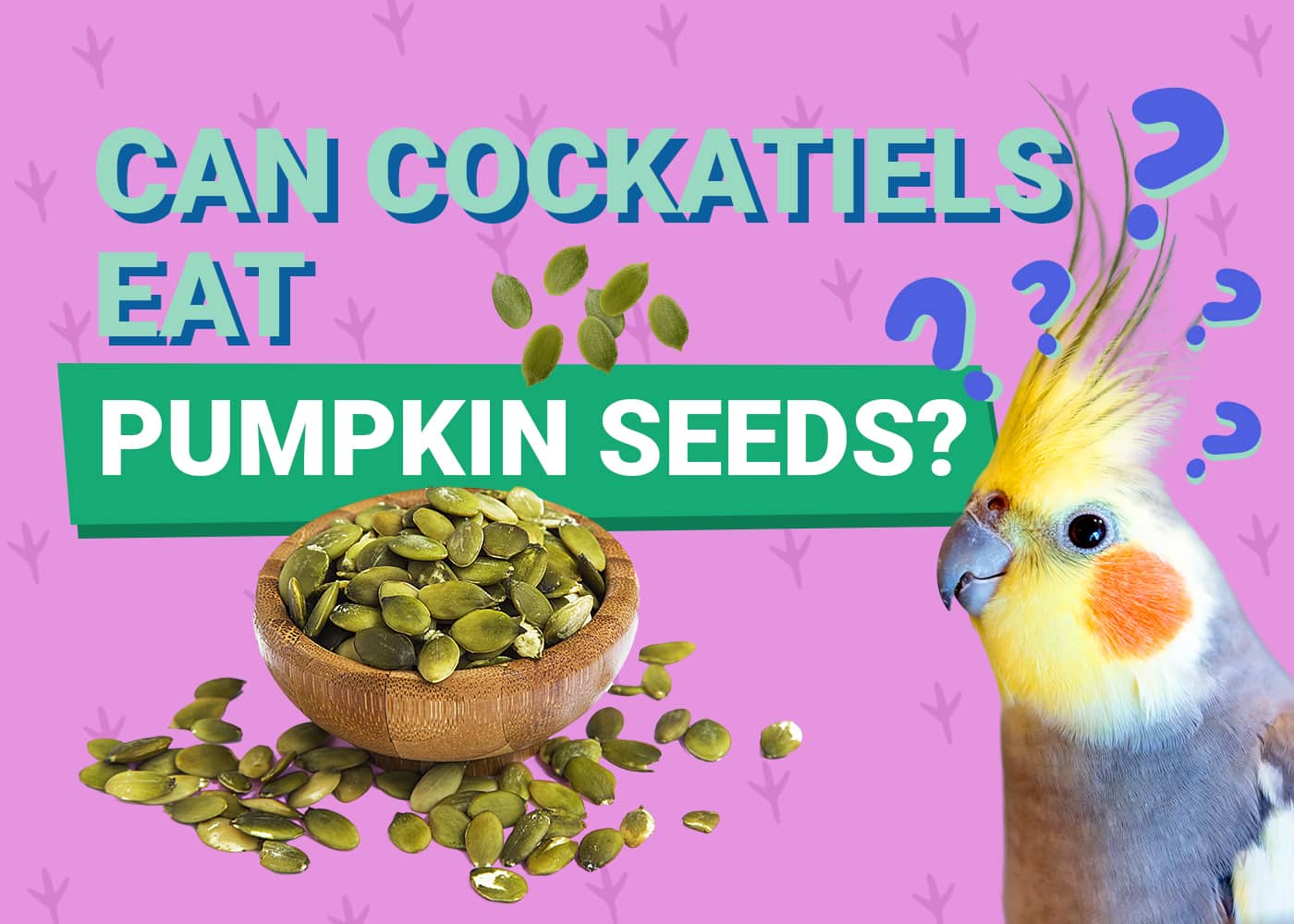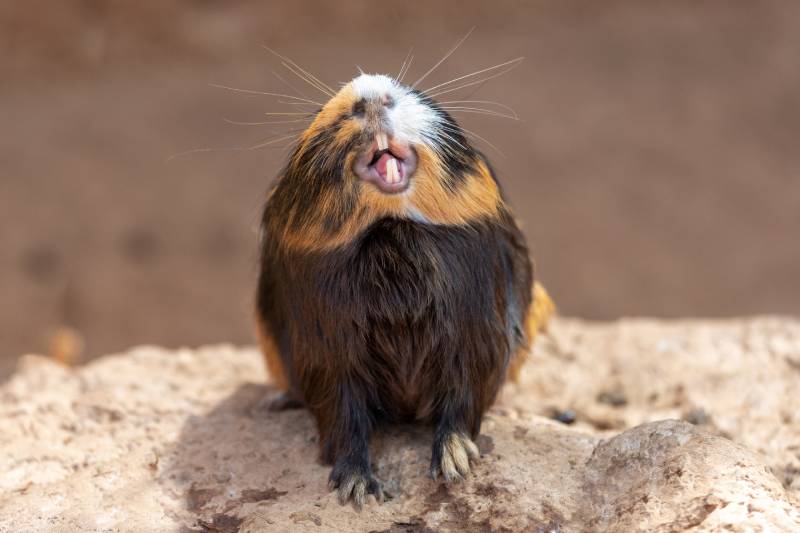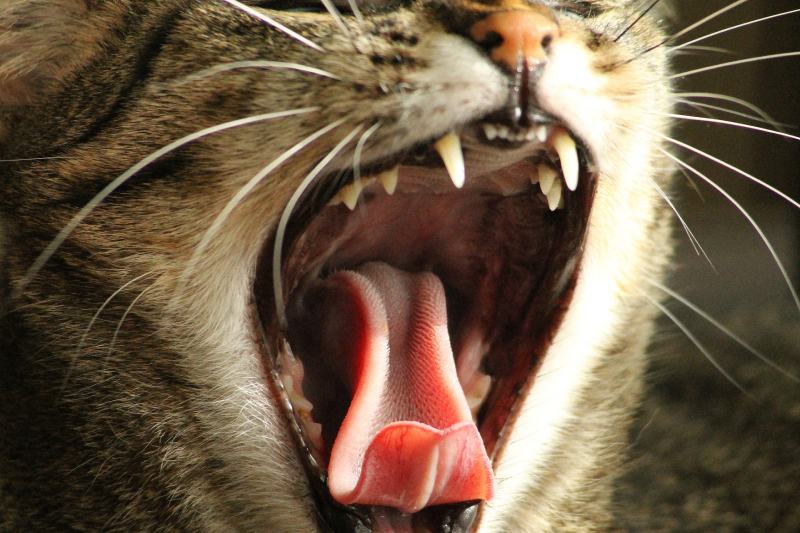VET APPROVED

The information is current and up-to-date in accordance with the latest veterinarian research.
Learn more »Click to Skip Ahead
As herbivores, rabbits have very specific dietary needs. But with these pets, you can carefully experiment with new foods, especially when looking for a quick snack to keep them going.
Since rabbits have complex digestive systems, you must be careful about what you feed them. For example, introducing new foods too quickly or feeding inappropriate food choices can disturb your rabbit’s normal digestive flora.
If you’ve ever tried to feed your rabbit a bagel, it may be time to reconsider your decision. It’s unsafe to give bagels to these adorable creatures. Here’s everything you need to know about feeding your rabbit bagels.

Can Rabbits Eat Bagels?
Rabbits should not eat bagels, as it’s difficult for their digestive systems to process bread. Feeding your rabbit a bagel or any other kind of bread can lead to digestive disturbances. All types of bread, including bagels, have too much starch, too much fat, and not enough fiber for their guts to handle.
Although bagels aren’t toxic or poisonous, they are dangerous for rabbits. You should refrain from feeding them even just a few bites of a bagel. However, a more considerable amount will cause the above-mentioned issues. Too much of a bagel can also lead to diarrhea and colic for your rabbit. In the worst-case scenario, your rabbit may suffer from fatal gut problems like GI stasis.
It’s best to exclude bagels and any other breads or cereals from your rabbit’s diet, and don’t leave them unattended with any bread.
Are There Any Health Benefits of Bagels for Rabbits?
Bagels have no health benefits for rabbits, as they are not necessary for their diets. A healthy diet for a rabbit includes mostly hay, supplemented with some dark leafy greens, vegetables, rabbit pellets, and just a little bit of fruit as a treat, but no more than 5%.
Since bagels don’t provide any nutritional value for rabbits, there’s no reason to feed them these fatty and starchy foods and upset their digestive tracts. Simply put, there are no nutrition or health benefits from bagels, and it isn’t worth it to risk fatal health issues like GI stasis.
Vegetables and fruits are the best alternatives to give your rabbit a small treat, and they also provide some extra vitamins and minerals. These include tiny pieces of watermelon, broccoli, apples, carrots, strawberries, cucumber, bell peppers, and other similar veggies and fruits.
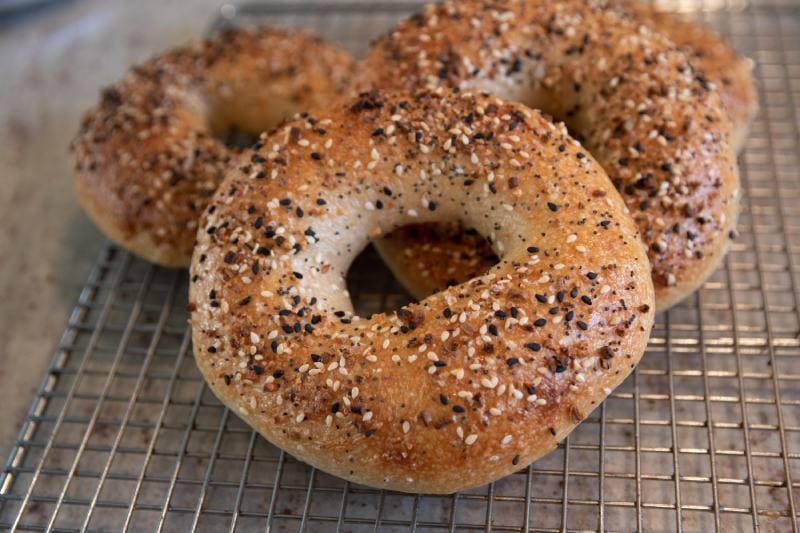
Health Risks of Bagels for Rabbits
When you assess the nutritional requirements of a rabbit, it’s instantly clear that bagels are not suitable for a rabbit’s dietary requirements. Every aspect of a bagel, from its carbohydrates to its high fat levels, is not beneficial for rabbits.
While not exactly a nutritious food item, bagels provide some nutrition for humans. However, the same cannot be said about rabbits. Since rabbits have completely different digestive systems than ours, you cannot feed them bagels for multiple reasons.
While rabbits also require some carbohydrates for energy, feeding them a diet too high in grain may cause a starch overload in the hindgut. This changes their caecum pH and causes an alteration of their fermenting bacterial population, leading to excessive gas production, colic, and enteritis. This condition can also quickly escalate to a gut stasis, which is a very dangerous and often fatal condition for rabbits.
Another possible (but not better) outcome of changing the caecum pH is a condition known as enterotoxaemia. This condition causes an overgrowth of Clostridial species in the rabbit’s caecum. While these species are not considered normal flora in the rabbit’s digestive tract, a change in the pH will trigger a quick overgrowth of this species in a rabbit that has previously been infected. The main issue with these bacterial strains is that they release enterotoxins, which damage the intestinal cells or enterocytes. As a result, the rabbit suffers from diarrhea and quick dehydration.
In order to keep their digestive health in good shape, rabbits need to consume a high-fiber, low-starch diet, but bagels offer the opposite. To fulfill a rabbit’s daily dietary requirements, you’ll need to feed them foods with high amounts of fiber and low in protein, such as timothy hay. The fermenting bacteria population in the caecum allows rabbits to digest fiber to some extent. Fiber helps rabbits keep a healthy gut mobility, as it offers the right nutrients for their gut bacteria and allows them to produce cecotropes while stimulating their appetite.

What Should I Feed My Rabbit?
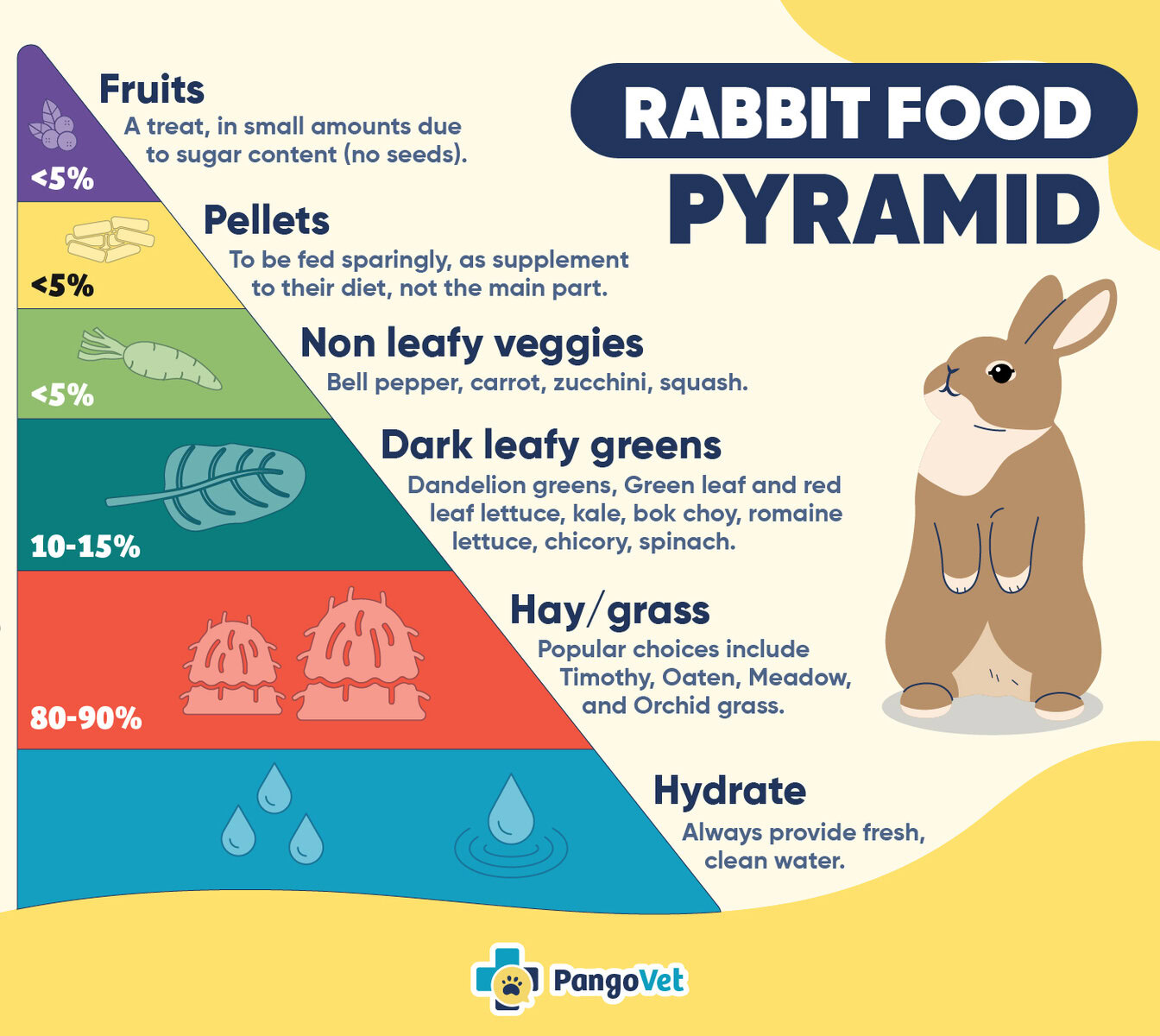
The perfect diet for a rabbit includes about 80% of hay, 10% of dark leafy greens, and 5% of rabbit pellets, and it can also be supplemented with a little bit of fruits as a treat, but no more than 5%.
Since hay has the right amount of fiber, high-quality grass hay like timothy or orchard should make up most of your rabbit’s diet. This helps keep the pet’s teeth in good shape and their digestive tract healthy.
Even the kind of hay needs to be adapted to your rabbit’s stage and nutritional needs. For example, young and growing rabbits can eat alfalfa hay, which is not recommended for adult rabbits due to the extremely high levels of protein and calcium.
Besides hay, your rabbit’s diet must also include a limited number of pellets. Approximately 5% of their diet can come from pellets. However, it’s essential to be careful while feeding your rabbits pellets, as its overconsumption can lead to obesity and other digestive issues.
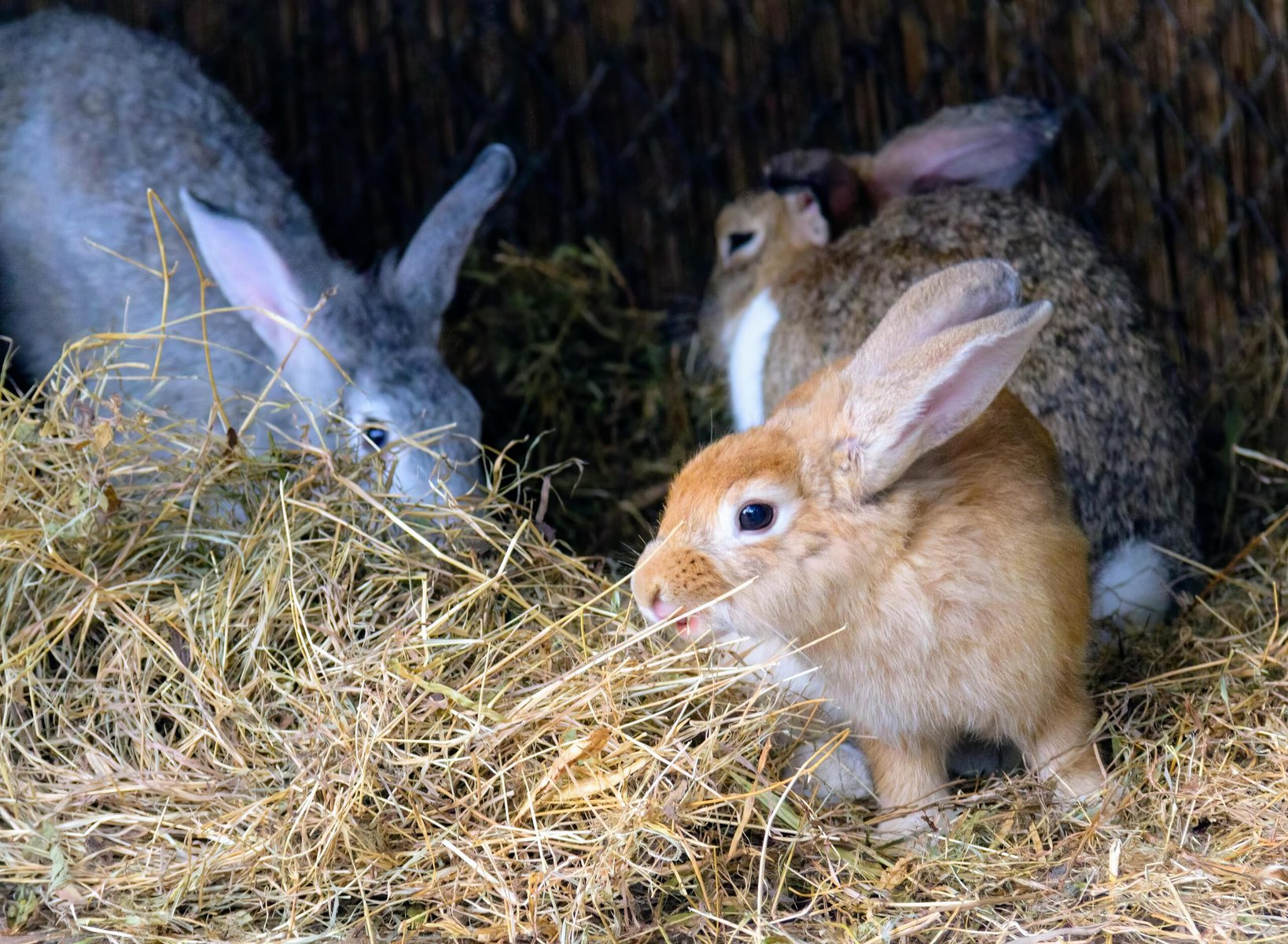

Conclusion
Rabbits have incredibly specialized digestive systems, so you must be careful about what you feed them. Bagels are very dangerous to include in a rabbit’s diet, as they lead to dysbiosis, excessive gas, and other digestion-related issues that can even be fatal. Keep these risks in mind while feeding your rabbit. Your main priority is to keep their digestive tract healthy, and they do not need cereals or excessive grains in their diets to do this, especially not processed ones.






